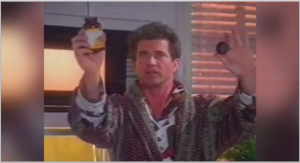The U.S. Food and Drug Administration reports that if you buy imported products marketed as “dietary supplements” and nonprescription drug products from ethnic or international stores, flea markets, swap meets or online, watch out. Health fraud scams  abound.
abound.
And in the U.S. too.
According to Cariny Nunez, M.P.H., a public health advisor in the Office of Minority Health at the Food and Drug Administration (FDA), health scammers often target advertising to people who prefer to shop at nontraditional places, especially those who have limited English proficiency and limited access to health care services and information.
“These scammers know that ethnic groups who may not speak or read English well, or who hold certain cultural beliefs, can be easy targets,” Nunez says. For example, Native Americans, Latinos, Asians and Africans may have a long tradition of turning to more herbal or so-called “natural” remedies. Many advertisers put the word “natural” somewhere on the package of a product, knowing it inspires trust in certain groups.
But just because a product claims to be natural doesn’t necessarily mean it’s safe, says Gary Coody, R. Ph., FDA’s national health fraud coordinator. Likewise, just because a product claims to be natural does not mean that it’s free of hidden drug ingredients.
Furthermore, these products may also be contaminated or contain potentially harmful chemicals or drug ingredients not listed on the label.
For example, many products that claim to help people lose weight contain hidden and dangerous prescription drug ingredients such as sibutramine. Sibutramine was in Meridia, a formerly FDA-approved drug that was removed from the market in October 2010 because clinical data indicated it posed an increased risk of heart problems and strokes.
